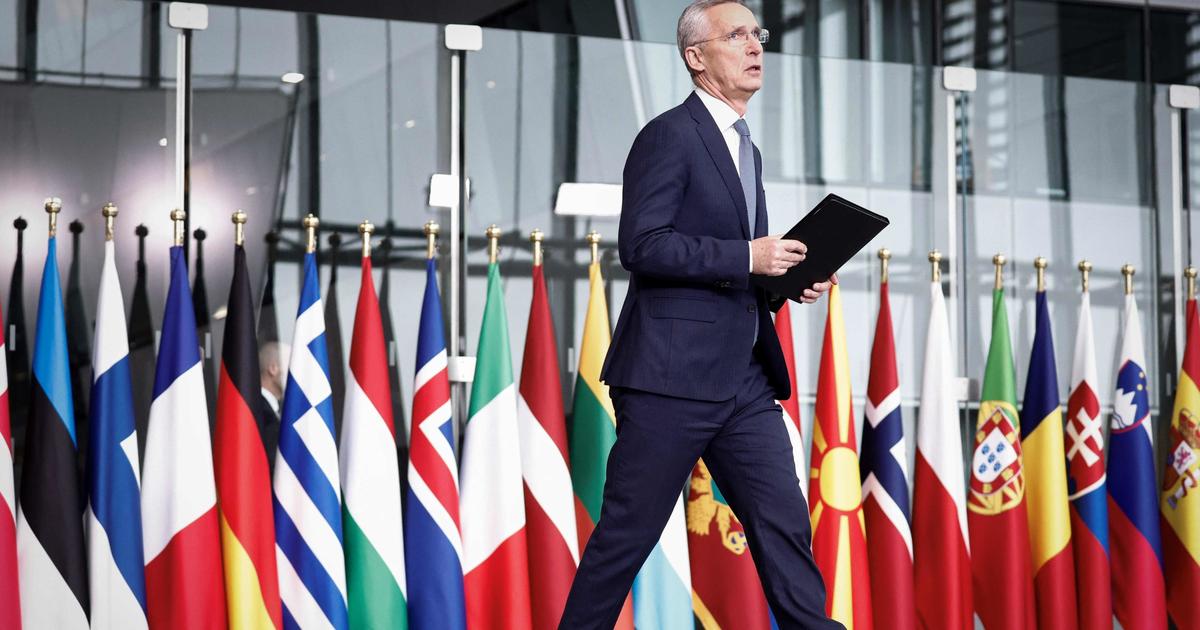Jens Stoltenberg (Oslo, 63 years old) is a mathematician by training and also by vocation, to the point that, when asked what book he would take to a desert island, he bets on a statistics manual.
But the scientific logic of this tall and fit Norwegian has crashed for years against an enigma that he is unable to solve: how is it possible that his little sister died a victim of drug addiction if he grew up and was educated in the same family, school and social environment than his older sister, a successful doctor, and himself, who has become nothing less than secretary general of NATO after being twice prime minister of his country.
"A photo of the three of them is always in his office," says a person who treats him almost daily at NATO headquarters in Brussels.
More information
Stoltenberg considers that Sweden has taken "important steps" to circumvent Turkey's veto to its entry into NATO
The top leader of the Atlantic Alliance has confessed that he turns this sad paradox over and over.
But his own much happier trajectory is no less surprising.
There was no indication that little Jens would have a successful career, much less in politics.
Or that he ended up being one of the protagonists of a global scenario in which, with the Russian invasion of Ukraine, the ghosts of a third world war and nuclear destruction have resurfaced.
Until the age of 10, Stoltenberg was unable to learn to read and write, he even had trouble speaking and suffered from obesity.
"Nothing indicated that he could be the leader of a party, prime minister or secretary general of NATO," he confessed on the British radio station BBC Radio 4, in one of the most personal conversations he has had in public.
Stoltenberg had sucked politics at home, with parents very committed to social democracy and the causes of national emancipation of the sixties and seventies.
As a child he thought it was normal for African freedom fighters from Angola, Mozambique or South Africa to pass through his home, including the legendary Nelson Mandela.
Or that his mother was a feminist and fought for social and family rights and for same-sex marriage.
The political flame did not catch on in a young man devoted to his studies in mathematics and statistics, firmly determined to avoid the political career that his father had followed and to direct his working life towards administration (he became a civil servant) and education.
Among the alternative paths he chose was also journalism.
But fork after fork, the path led, hand in hand with the Labor Party, to the terrain that he had tried so hard to avoid.
Several decades after that fortuitous turn in his biography, Stoltenberg is still at the foot of the canyon, never better said.
This week he is chairing a historic NATO summit in Madrid: it will mark the start of a rearmament of the Old Continent without precedent since the end of World War II and the deployment of more troops on one flank of the Alliance (from the Baltic to Romania) who feels threatened by the Russian president, Vladimir Putin.
Since the Russian army entered Ukraine and shattered the peace, the secretary general faces the risk of an armed clash between NATO and Russia.
Faced with this terrifying situation, "he keeps calm and a steady hand," they say from his team.
In politics, Stoltenberg also experienced the saddest day of his career: the 2011 terrorist attack in the Norwegian capital and on the island of Utoya that claimed the lives of 77 people, most of them young people attending a summer camp organized by the youth of the socialist party.
He spent many summers on Utoya, he knew the scene of the massacre like the back of his hand, committed by a Norwegian far-rightist.
The response of the then prime minister was to advocate for more democracy and more transparency, combined with more firmness in the face of potential threats.
Stoltenberg, who as a young man had attended demonstrations against the Vietnam War, encountered violence unusual in his country.
Shortly after, in 2014, the Norwegian took charge of the largest defensive alliance on the planet, with 30 allies today that add up to almost 1,000 million inhabitants and account for 50% of world military power.
His mandate coincided with the presidency of Trump, who at the 2018 NATO summit came to question the survival of the Alliance.
The Norwegian leader, whom some sources accuse of bowing too much to the will of Washington, worked hard to maintain the unity of the allies.
And he did it.
"Nobody noticed that at that summit he kept calm and concentrated despite being aware that his father was dying in Oslo," they point out from his environment.
"When it was over, she flew to Norway and was with him when he died."
Trump's legacy ended in NATO's humiliating withdrawal from Afghanistan due to the Taliban's victory, aggravating the organisation's instability.
But a war in Europe has returned the Alliance to its historic mission: to contain the expansionist temptations of a once communist Russia and now in the hands of a kleptocracy, but always armed to the teeth and with the nuclear button within reach of the Kremlin.
Stoltenberg, who has been appointed to head the Bank of Norway, has agreed to extend his term in Brussels until 2023.
He told his team: "What I'm doing now is much more important."
The war once again frustrated his vocation.
Sign up for the weekly Ideas newsletter
here .
50% off
Exclusive content for subscribers
read without limits
subscribe
I'm already a subscriber






/cloudfront-eu-central-1.images.arcpublishing.com/prisa/2C5HI6YHNFHDLJSBNWHOIAS2AE.jpeg)



